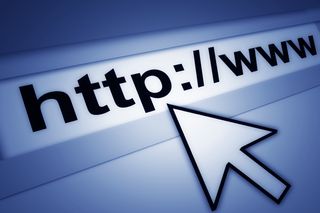EU Parliament gives net neutrality backing
ISPs may face greater scrutiny over their traffic management practices thanks to a European Parliament vote.

The European Parliament has voted in favour of keeping the internet "open and neutral" as it looks to ensure telecoms firms don't throttle citizens' connections.
A resolution agreed on by MEPs stressed the need to scrutinise telecoms providers' traffic management practices so certain users are not given preferential treatment, meaning others miss out.
It also asked the European Commission to issue guidelines to guarantee rules on net neutrality are properly applied.
It is clearly understood that traffic management practices must not be used for anti-competitive purposes.
Parliament called for assurance that "internet service providers do not block, discriminate against or impair the ability of any person to use or offer any service, content or application of their choice irrespective of source or target."
"Reasonable data traffic management is required and very useful to prevent network congestion and the smooth running of applications and services. Nonetheless, it is clearly understood that traffic management practices must not be used for anti-competitive purposes," said Industry, Research and Energy Committee chair Herbert Reul.
MEPs expect to enshrine the conclusions around net neutrality in law on 13 December.
Get the ITPro. daily newsletter
Receive our latest news, industry updates, featured resources and more. Sign up today to receive our FREE report on AI cyber crime & security - newly updated for 2024.
The European Parliament's work has been applauded by a number of onlookers.
"Neelie Kroes and the European Commission have taken a balanced approach to net neutrality and rightly so," said Dominique Lazanski, head of digital policy at the Tax Payers' Alliance.
"We enjoy competition in internet service providers, mobile access and content in Europe unrivalled anywhere else in the world. There has been no issue or event to even consider bringing net neutrality in Europe."
Lazanski said it would be unwise for the EU to enforce additional legislation to keep the net neutral.
"We feel that any further step in legislating for net neutrality is not necessary due to the fact that the Telecoms Package is more than sufficient to deal with issues of competition and poor consumer services," she added.
"The need to grow the European economy is essential in these difficult economic times. Unnecessary regulation on an already competitive internet service market will impede Internet access, take away from internet infrastructure development and impact economic growth throughout Europe."
BT was recently accused in a New York Times article of throttling three quarters of its broadband connections in the UK.
BT dismissed the report as outdated, telling our sister publication PC Pro that some companies in it were not in existence anymore.
However, the Max Planck Institute, which provided the data for the New York Times, said the information was current.
Tom Brewster is currently an associate editor at Forbes and an award-winning journalist who covers cyber security, surveillance, and privacy. Starting his career at ITPro as a staff writer and working up to a senior staff writer role, Tom has been covering the tech industry for more than ten years and is considered one of the leading journalists in his specialism.
He is a proud alum of the University of Sheffield where he secured an undergraduate degree in English Literature before undertaking a certification from General Assembly in web development.





